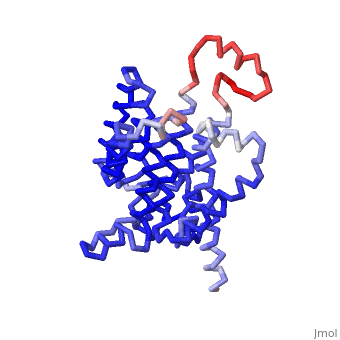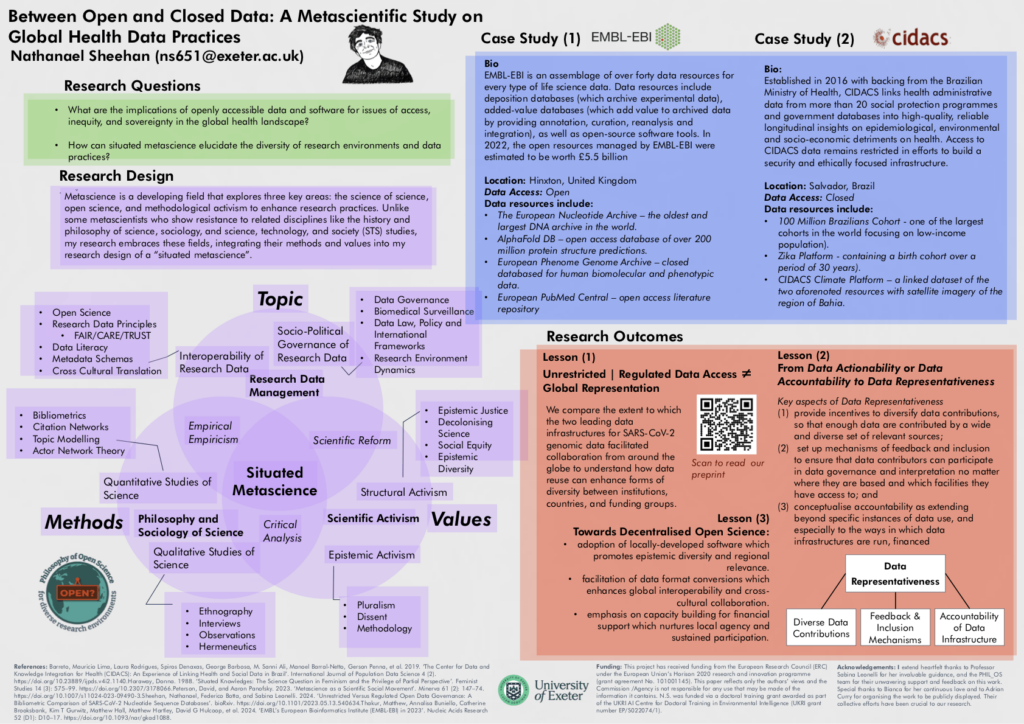- Lead: Nathanael Sheehan
- Collaborators: European Nucleotide Archive (ENA)
- Locations: UK, online

The sharing of genetic data pertaining to the SARS-CoV-2 virus has been celebrated as a landmark achievement for the principles underpinning Open Science. However, a critical evaluation reveals that two divergent frameworks of data governance have been operatively dominant during this period.One being partially open, supported by the Global Initiative on Sharing All Influenza Data (GISAID) and the other being fully open, supported by members of the International Nucleotide Sequence Database Collaboration. These frameworks not only propagate different normative interpretations of sound data management, but further serve as templates for the large-scale data infrastructures that will shape the approach to future pandemic management and other collaborative and coordinated scientific endeavors.

We delve into the intersection of open science practices and global health inequalities, particularly as they relate to the open dissemination of SARS-CoV-2 genetic data.
We ask: What pathways has this data navigated and which specific communities have been most affected by its dissemination? What are the implications of openly accessible SARS-CoV-2 genetic data for issues such as access, inequity, and sovereignty in the global health landscape? How do stewards of such data interpret the principles of responsible data management, and what practices are enacted to fulfill these principles?
Publications
Poster

- Sheehan, N. (2024) “Between Open and Closed Data: A Metascientific Study on Global Health Data Practices”. Poster prepared for the Environmental Intelligence symposium “Can AI change the World?” (Dartington Hall, 7 March 2024).
Journal articles
- Sheehan, N. and S. Leonelli (2024, forthcoming). Reconciling Data Actionability and Accountability in Global Health Research. Global Public Health
- Sheehan, N., F. Botta and S. Leonelli (2024) Unrestricted Versus Regulated Open Data Governance: A Bibliometric Comparison of SARS-CoV-2 Nucleotide Sequence Databases. Data Science Journal, 23:29. doi: 10.5334/dsj-2024-029. Preprint: bioRxiv, https://doi.org/10.1101/2023.05.13.540634.
- Talbot, J. et al (2022) Active Travel Oriented Development: Assessing the suitability of sites for new homes. European Journal of Transport and Infrastructure Research, 22(4), pp. 51–72. doi: 10.18757/ejtir.2022.22.4.6015.
Presentations
Invited talks
- Data Crunch (Exeter/online, December 5 2022): “Open Data in the Private Industry”
- 2022 Philosophy of Open Science open meeting, (Exeter/Online): “Responsible Repositories”
- Data Crunch (Exeter/online, 17 November 2023) with Sabina Leonelli: “Open data governanc and sustainability models for data intermediaries”
- Institute for Data Science and AI network launch event (IDSAI-ECRN) (Exeter, 8 February 2023): “Analysis of COVID-19 sequencing platforms”
- PHIL_OS Exploratory Conference (Exeter, March 30-31 2023): “Open Data and Software in Science”
- Data Crunch (Exeter/online, April 29 2024): “FAIR open data”
Submitted talks
- Third PhilInBioMed Conference (Pittsburgh, November 13-14 2022): “Analysis of COVID-19 sequencing platforms”
- 20th Research Data Alliance plenary (Gothenburg, 21-23 March 2023): “Analysis of COVID-19 sequencing platforms”
- Biennial meeting of the International Society for the History, Philosophy and Social Studies of biology (ISHPSSB) (Toronto, 9-15 July 2023): “Covid-19 Genomic Data: Diverse Enough?”
- Biennial meeting of the Philosophy of Science Association (PSA) (New Orleans, November 14-17 2024): “Inclusive Open Data: Decentralisation as an Organising Principle”